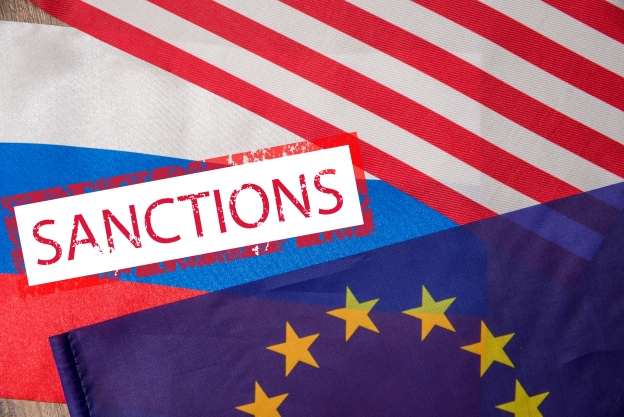
NeuGroup’s Feb. 28 emergency session on the implications of Russian bank sanctions helped treasurers share challenges and learn from others’ real-time responses.
The crisis in Europe has the potential to wreak havoc on global payments systems, and the stakes are high. Many multinational companies have Russian operations and relationships with local banks (for payroll at least) that may be on the sanctions list. These corporates are therefore sitting on potentially trapped cash. Others own stakes in Russian companies; we saw BP and others already pull out. So the most immediate problems are how to get money into and out of Russia and making payroll.
Dearth of information. Operating with scarce official guidance from regulators and their advisors and banks, treasurers were scrambling this week to make sense of sanctions imposed over the weekend. At a Monday, Feb. 28, emergency meeting of NeuGroup’s extensive global network of finance and treasury executives, over 35 finance leaders from some of the world’s leading multinationals had more questions than answers. In this second session about the Russian crisis since the start of the month, participants had a unique chance to share information and discuss how they’re responding in real time.
An information vacuum leads to misinformation. The immediate concern was that the US and European authorities have not provided unequivocal guidance on what corporate activities are covered by the sanctions. Paul Dalle Molle, a former banker who led the session, noted this is typical in a crisis and that authorities “have only begun to imagine what guidelines and exceptions to publish.” And corporates’ typical “interpreters”, auditors, consultants and banks, were themselves struggling to understand the implications, and as events continue to unfold at extreme speed, they are unlikely to catch up.
One participant reported treasury is getting conflicting information from its banks about cross-border and local payments. In addition, members were concerned about how quickly banks can update their systems to block payments to and from sanctioned institutions. “Where we pay out, we have control, but we don’t have control over where we’re being paid from,” one NeuGroup member said.
Getting money in and out. US and European companies were of course aware of an imminent crisis, and many had begun to take cautionary steps. But the speed with which the crisis unfolded, and the harsh sanctions imposed by the global community, put many at great risk. For example, one member said her company thought it had until March 22 to move money out of banks that have relationships with correspondent banks on the sanctions list, but had just learned that date may have been moved forward to March 14. Another member pointed out that the sanctions, possibly including the calendar for phasing them in, is not the same for each sanctioned entity.
Making payroll. Another big concern is how companies can pay local employees. This was not because Russians are in the midst of a run on their banks – the central bank can pump in an endless supply or rubles – but because (1) their bank may be on the sanction list; (2) their employees may have accounts at sanctioned banks. Some companies are asking employees with accounts at banks on the sanctions list to switch banks.
Russian supply chain. At least one corporate has stopped making all ruble payments within the country to avoid violating any sanctions. Another treasurer said his company is “getting requests from large international suppliers to ‘guarantee’ our Russian affiliates’ payments.”
Alternatives to SWIFT? In addition, there was a lot of concern about making payments into Russia without SWIFT and on the local payment system. Part comforting, part wishful thinking, “there’s a belief that the SWIFT sanctions will be selective and will spare some of the main banks in Russia that are not blacklisted,” offered one participant, adding that his main bank in Russia believes it will be able to conduct business within the guidelines. The European Union said Wednesday it was excluding seven Russian banks from the SWIFT, but stopped short of including banks handling energy payments.
As in the first NeuGroup session on the crisis, members discussed the possibility of using the Chinese payment system, CIPS, as a legal alternative. “Obviously this would be done, if necessary, only through non-sanctioned banks,” said Mr. Dalle Molle. “This process would be cumbersome and expensive, but feasible, he said.
In-flight payments. The uncertainty was particularly troubling to one company that sent a big payment from the local entity of a foreign bank to the US-based entity. “We saw the money has left our account,” the treasurer said, “but we still haven’t seen it land in our US account.” The issue of settlement risk was also raised within the context of outstanding ruble hedges. “You certainly have to evaluate your exposure,” said one member.
Countering counter-sanctions. “The big risk is counter-sanctions and what those look like,” said one of the treasurers on the call. “Counter-sanctions could range in importance from being merely disruptive to the freezing of assets to prohibiting companies to operate in the country, so everyone is attuned to this topic,” said Mr. Dalle Molle.
Asking the right questions. Absent clarity of guidance, the most important thing treasurers can do is ask the right the questions and compare notes with each other. Immediate questions may include:
- How to make payroll in rubles? For example, how to figure out whether employees have accounts at sanctioned banks?
- How to pay employees fleeing Ukraine?
- How to pay local suppliers, who are beginning to demand payment guarantees?
- Is it still possible to pay dividends out of Russia—and for how long?
- What’s the exposure to outstanding ruble hedges?
- Can working through US-owned banks facilitate the payments process?
- How will the partial cut-off from SWIFT impact the payments system?
- What counter-sanctions may be imposed, and what might be their impact?
- What exceptions to the sanctions will be permitted by US and EU authorities?
The bottom line. As companies cope with these immediate issues, we see more of them asking a more fundamental question: whether the best option is to exit the market entirely.
NeuGroup will hold a special session on Russia sanctions on Friday, March 4. And for the foreseeable future, we will hold Russia sessions each Monday at 11:00 ET / 16:00 GMT / 17:00 CET.


